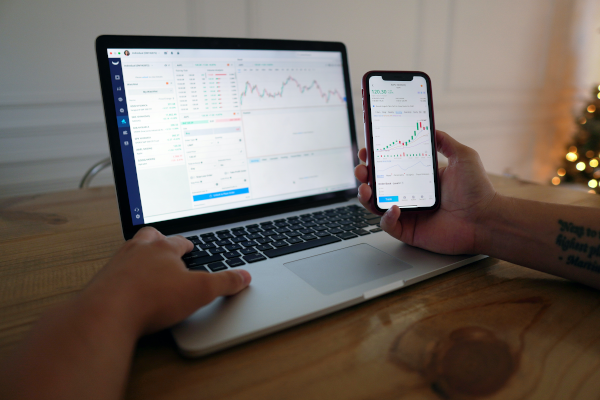Stock Dividends
 Dividends are like a small reward that a company pays you for owning shares of its stock. Each year, many companies return a portion of their earnings to their shareholders through dividends. In general, a company that has a slow growth rate pays high dividends. On the other hand, a company with a high growth rate usually pays no dividends at all.
Dividends are like a small reward that a company pays you for owning shares of its stock. Each year, many companies return a portion of their earnings to their shareholders through dividends. In general, a company that has a slow growth rate pays high dividends. On the other hand, a company with a high growth rate usually pays no dividends at all.
Historically, large corporations and utility stocks have paid regular dividends. Companies with a growth rate of less than 10%, for instance, might have a high cash flow but a slowly appreciating stock. They choose to pay dividends to investors in order to attract income because stocks that pay dividends are very appealing to certain investors.
In contrast, some large corporations with high growth rates and stock prices that appreciate rapidly probably do not pay dividends. The reason is that these companies reinvest their earnings into the company to grow their businesses.
The board of directors votes on the various aspects of dividends such as their approval and dates of distribution. Dividends are usually paid quarterly and sometimes annually or semiannually. However, many companies don't pay dividends at all. Older stocks are more likely to pay dividends than the latest IPO.
If the board of directors does decide to issue dividends, it will be announced at a set amount and will be paid to the shareholders as of a record date. Dividends will be paid on the distribution date, sometimes called the payable date. In order to receive the dividend, you must own shares of the stock on the record date.
An increasing number of public companies offer a dividend reinvestment program (DRIP). It automatically uses your cash dividends to purchase additional shares of the stock without a broker. Shareholders not participating in a DRIP will receive a check from the company when the dividends are distributed.
The importance of dividends depends on your investing strategy. If your main objective is to find stocks that are likely to appreciate quickly, dividends probably will not play a large role in your investment decisions. On the other hand, if your objective is to generate a steady return on your investment, stocks that pay dividends could become a central part of your strategy.




